When it comes to deer-resistant plants, the somewhat deceiving term doesn’t mean deer won’t eat those plants—it simply means they prefer to eat other plants. There is little they won’t eat in order not to starve, especially during drought or early in the growing season when food sources are scarce.
Deer get roughly a third of the water they need from plants, so they’ll sometimes turn to eating unusual plants (yes, even deer-resistant varieties) just to avoid dehydration.
But while there’s no such thing as deer-proof plants, there are plants that deer prefer less than others. Curious or hungry deer might sample a bite or two, but find that there are tastier options elsewhere.
What kinds of plants do deer not like to eat?
Anything with unpalatable characteristics, like bitter flavors or strong smells. Pot marigolds, peonies, and heavily fragrant herbs like rosemary and lavender tend to turn them off.
Deer also don’t like plants that feel weird or painful on their tongue, like those with coarse, leathery, hairy, prickly, or thorny stems and leaves. (They stay away from the fuzzy leaves of lamb’s ears for this reason, and won’t go after your globe artichoke plants.)
Knowing what they don’t like is also key in designing a garden that helps deter deer from certain areas where their favorite plants might be growing.
You can interplant deer-resistant varieties with your annuals and perennials to discourage them, but remember that there’s no avoiding some deer damage—the goal is to keep the damage to an acceptable level.
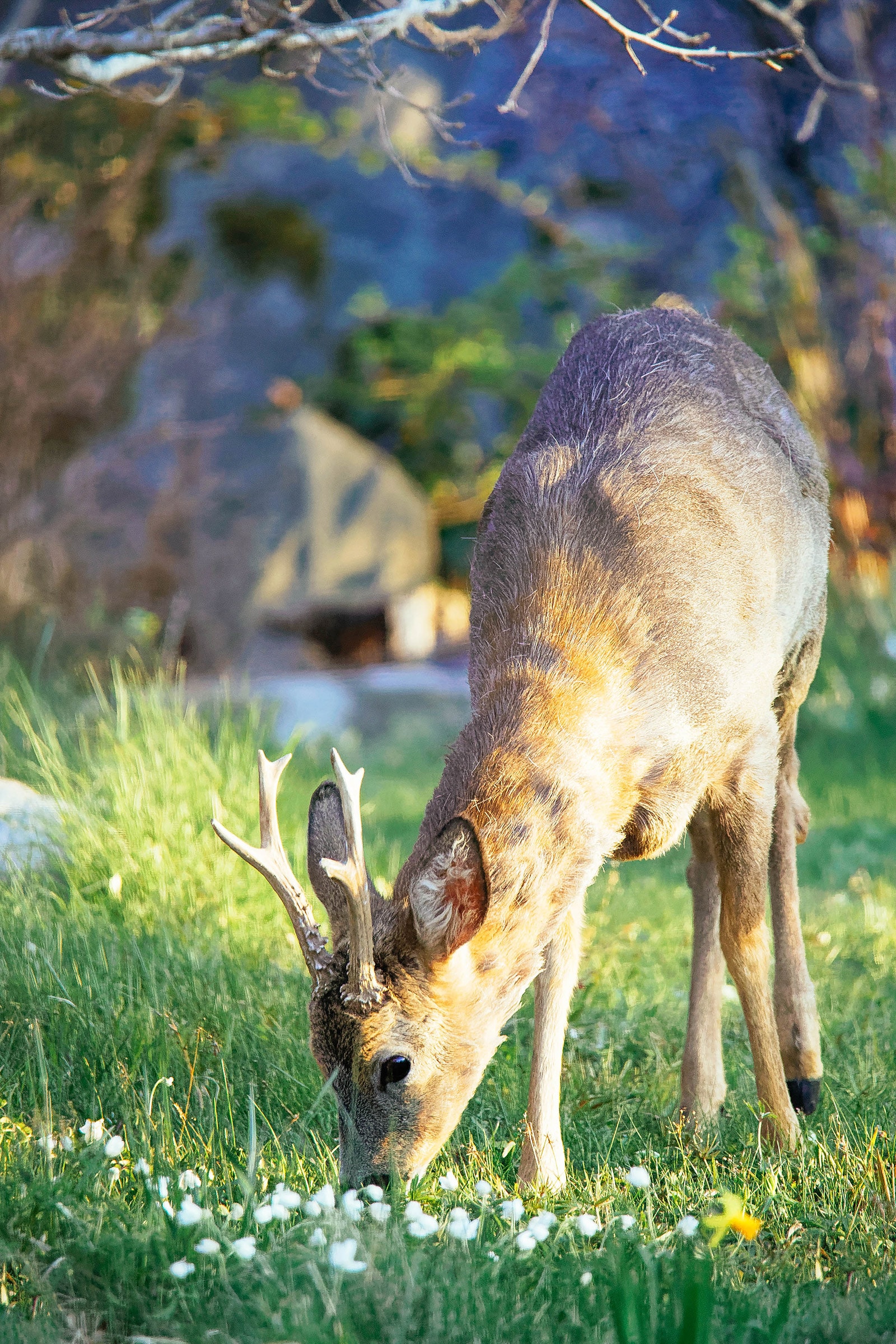
Even the most deer-resistant varieties are vulnerable in the garden, especially in the first few weeks after planting when leaves are nitrogen-rich. (Deer seem to prefer plants that have been fertilized to those that haven’t.)
Mature plants also tend to weather deer damage better than new transplants. They don’t have the young shoots and tender foliage that deer love to eat, and if they do get snacked, they’re usually able to bounce back.
To protect new plants, always use deer repellent spray until the plants establish their roots. These are the best deer repellents that I recommend for both ornamental and edible gardens.
For more ways to keep deer out of your garden (safely and humanely), check out the five strategies laid out in my deer-resistant garden guide.
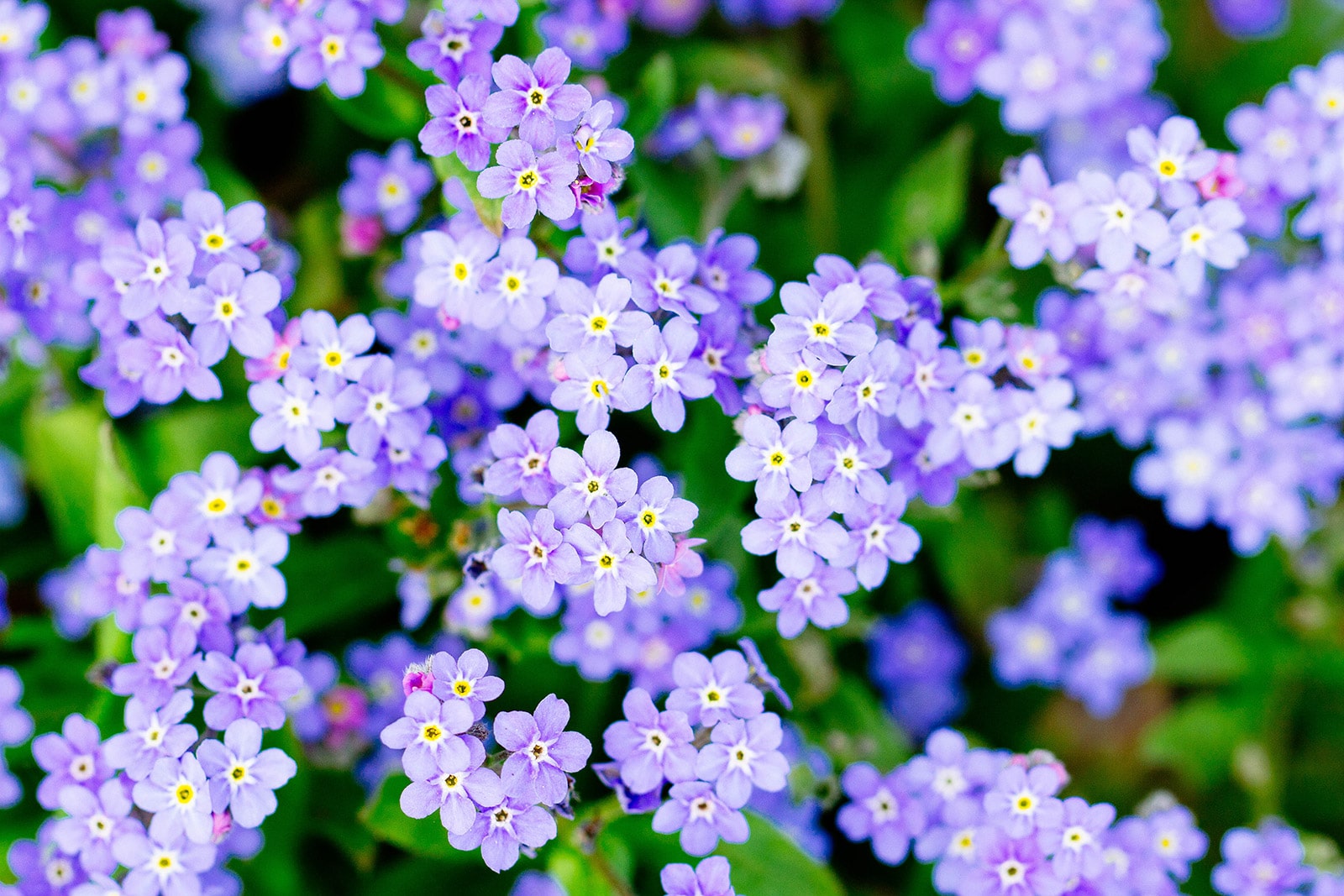
Disclosure: If you shop from my article or make a purchase through one of my links, I may receive commissions on some of the products I recommend.
Deer-resistant ground covers
- Ajuga
- Allegheny spurge
- Alyssum basket of gold
- Barrenwort
- Bearberry
- Bellflower
- Bishop’s weed
- Creeping phlox
- Creeping wintergreen
- Forget-me-not
- Kenilworth ivy
- Kinnikinnick
- Lamb’s ear
- Lamium
- Lilyturf
- Lithodora
- Pachysandra
- Periwinkle
- Sedum
- Snow-in-summer
- Spotted deadnettle
- St. John’s wort
- Sweet woodruff
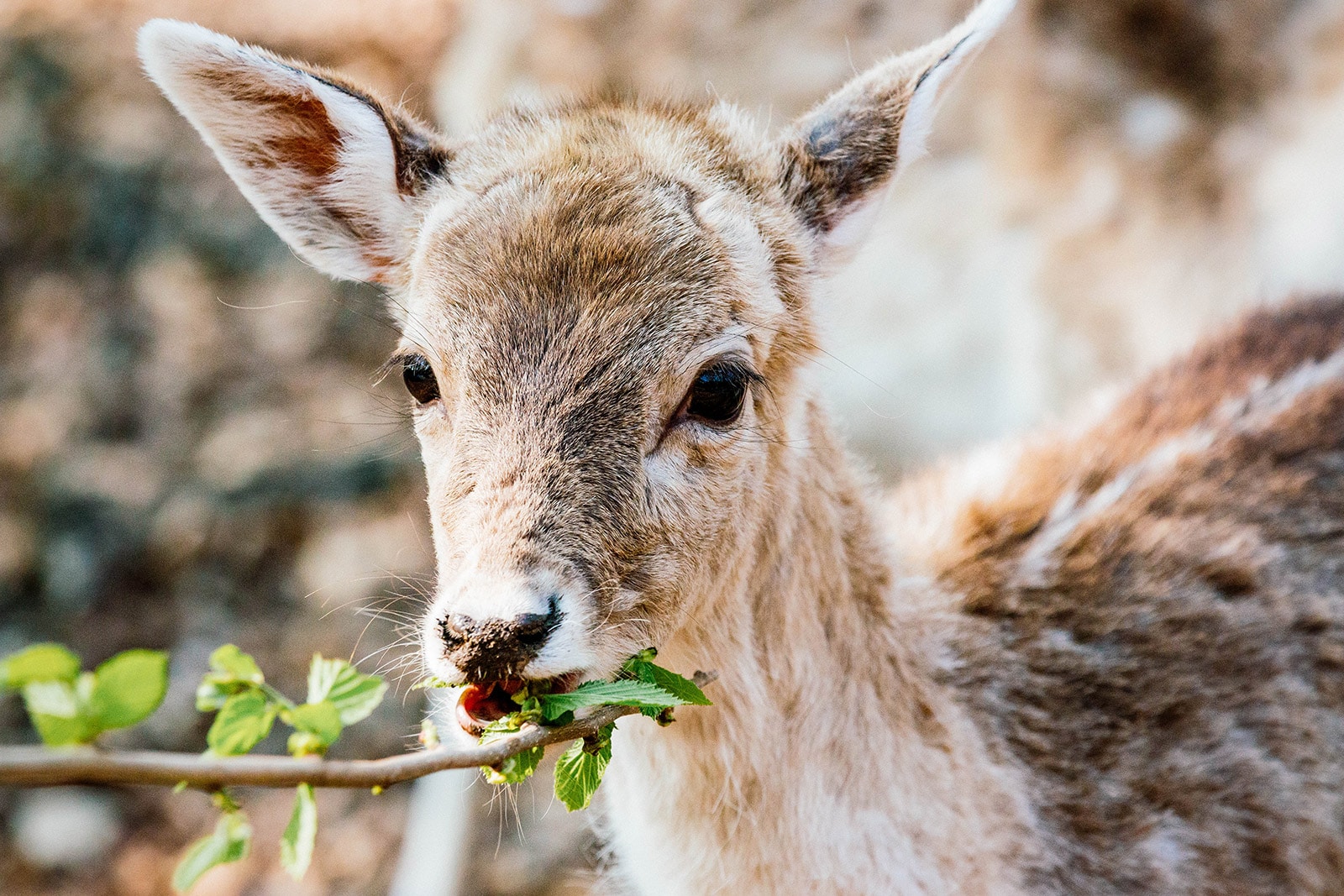
Deer-resistant shrubs
- Barberry
- Blue mist shrub
- Boxwood
- Buckthorn
- Bush germander
- Butterfly bush
- California flannel bush
- California lilac
- Coralberry
- Coyote bush
- Daphne
- Dogwood
- Firethorn
- Flowering currant
- Flowering quince
- Forsythia
- Genista (broom)
- Hardy bottlebrush
- Hazelnut
- Heath
- Heather
- Holly
- Inkberry
- Juniper
- Lavender
- Leatherleaf mahonia
- Manzanita
- Mexican orange
- Mock orange
- Mugo pine
- Oleander
- Oregon grape
- Potentilla
- Privet
- Red chokecherry
- Red elderberry
- Rockrose
- Rose of sharon
- Russian cypress
- Russian sage
- Silverberry
- Smokebush
- Snowberry
- Spirea
- Sumac
- Viburnum
- Witch hazel
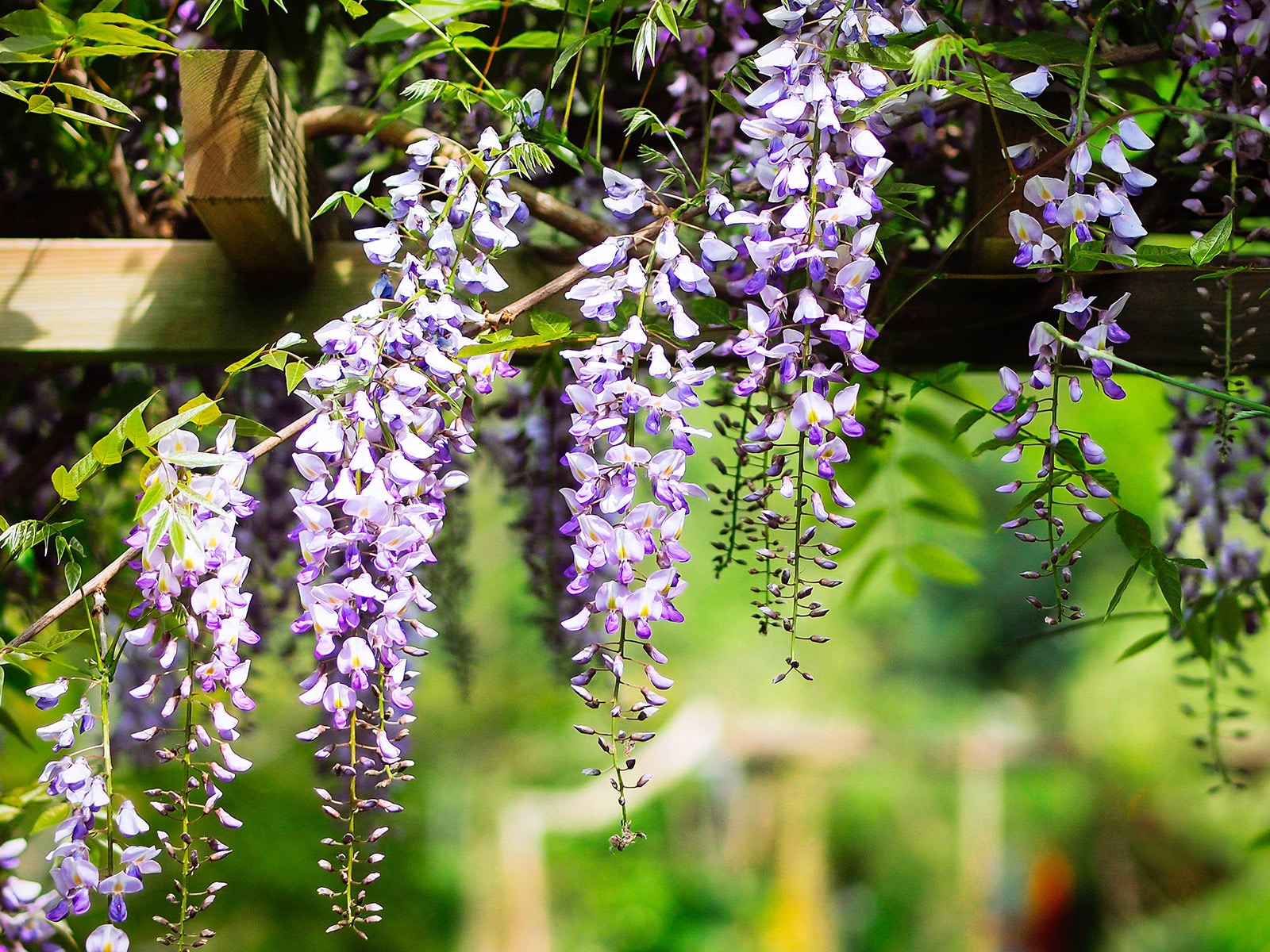
Deer-resistant vines
- Akebia vine
- Carolina jessamine
- China blue vine
- Cross vine
- Evergreen clematis
- Honeysuckle
- Hops
- Trumpet vine
- Virginia creeper
- Wisteria
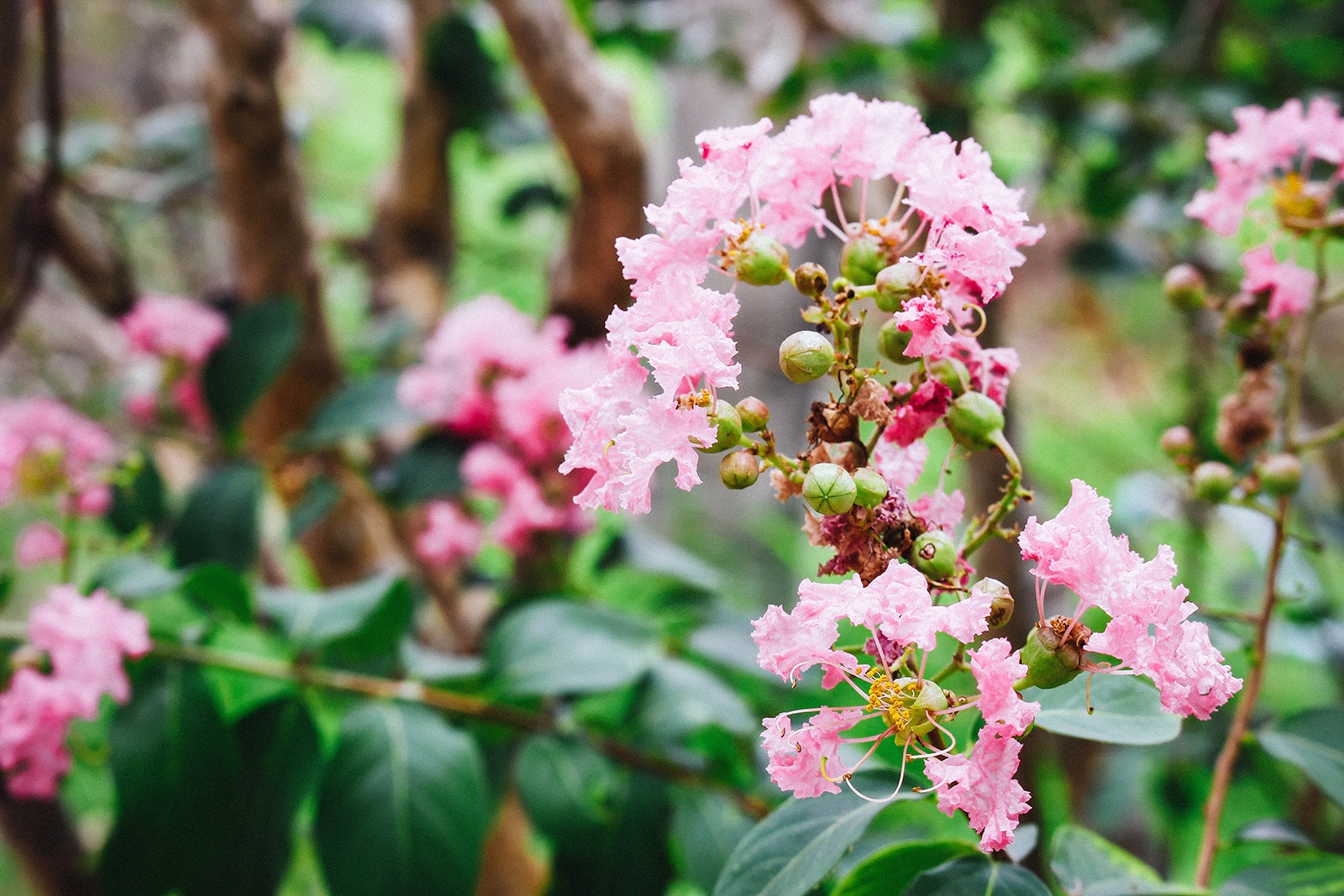
Deer-resistant trees
- Bay laurel
- Black locust
- Blue Spanish fir
- Cedar
- Chitalpa
- Coast redwood
- Crape myrtle
- Desert willow
- Douglas fir
- Fan palm
- Fig
- Giant sequoia
- Honeylocust
- Hawthorn
- Japanese maple
- Juniper
- Katsura
- Magnolia
- Maidenhair
- Mimosa
- Monkey puzzle
- Oak
- Paper birch
- Pine
- Sassafras
- Snow gum
- Spruce
- White fir
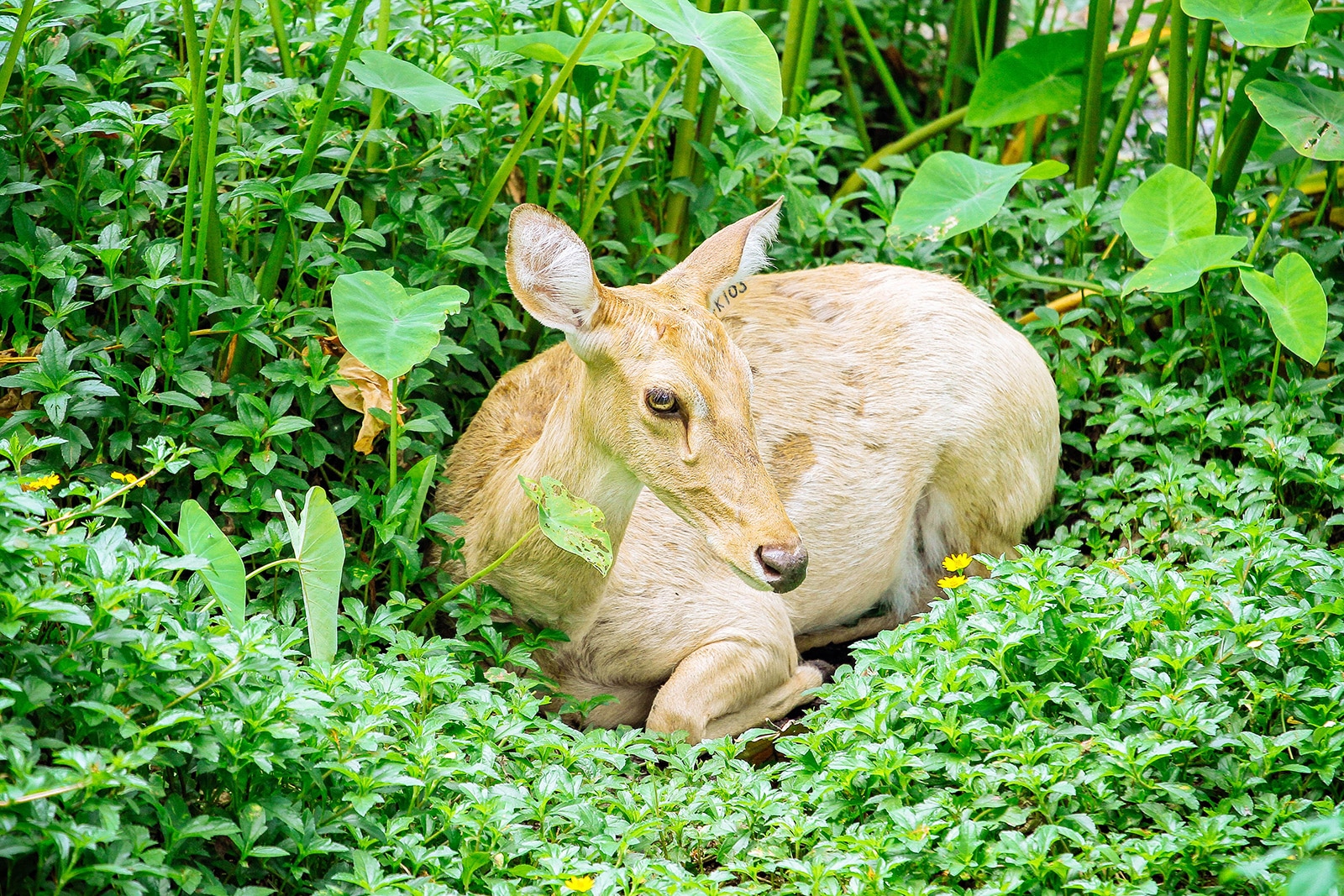
Deer-resistant perennials
- African lily
- Anemone
- Aster
- Astilbe
- Aubrietia
- Baby’s breath
- Bamboo
- Beardtongue
- Bee balm
- Black-eyed susan
- Blanket flower
- Bleeding heart
- Blue star creeper
- Buttercup
- Cactus
- Calla lily
- Canna lily
- Candytuft
- Carnation
- Caryopteris
- Catmint
- Centaurea
- Columbine
- Coral bells
- Coreopsis
- Cyclamen
- Daffodil
- Dame’s rocket
- Delphinium
- Evening primrose
- False indigo
- Fern
- Feverfew
- Fleabane
- Foam flower
- Foxglove
- Geranium
- Germander
- Gladiolus
- Globe thistle
- Gloriosa daisy
- Goldenrod
- Hellebore
- Hens and chicks
- Heronsbill
- Horehound
- Hyacinth
- Hyssop
- Iris
- Jupiter’s beard
- Lady’s mantle
- Lantana
- Lavender cotton
- Lenten
- Lily of the valley
- Lungwort
- Lupine
- Meadow rue
- Milkweed
- Monkshood
- Ornamental grass
- Ornamental salvia
- Partridge feather
- Peony
- Pincushion flower
- Poppy
- Purple coneflower
- Red-hot poker
- Rock cress
- Rose campion
- Rue
- Saxifraga
- Sea holly
- Sea thrift
- Shasta daisy
- Soapwort
- Speedwell
- Spiderwort
- Spurge
- Statice
- Sunrose
- Tansy
- Violet
- Wallflower
- Wood sorrel
- Wormwood
- Yarrow
- Yucca
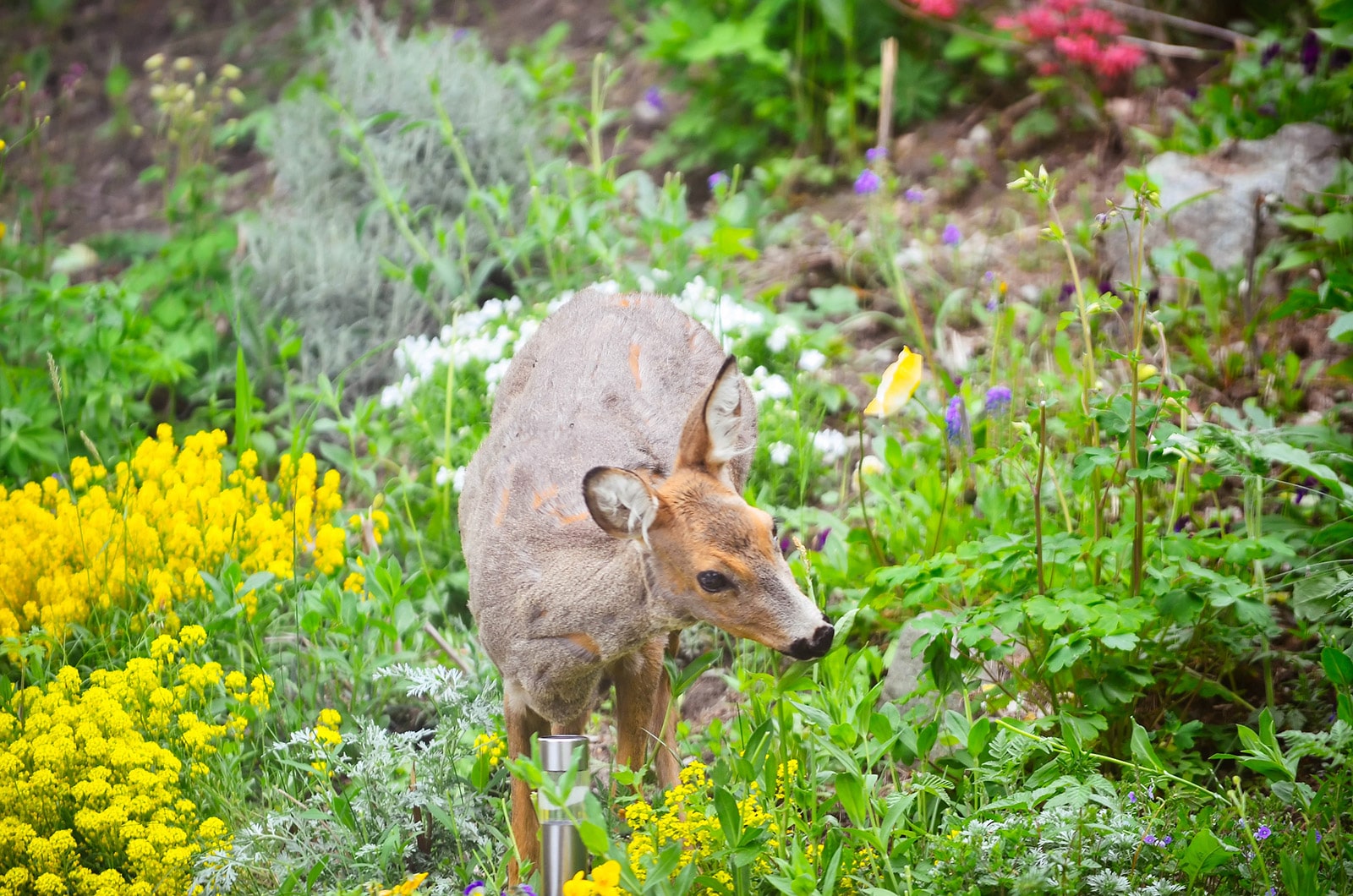
Deer-resistant annuals
- Ageratum
- Angel’s trumpet
- Bacopa
- Bachelor’s button
- Bells of Ireland
- Borage
- Calendula
- California bay
- Castor bean
- Celosia
- Clarkia
- Dusty miller
- Flowering tobacco
- Four o’clock
- Gazania
- Geranium
- Gerbera daisy
- Heliotrope
- Ice plant
- Larkspur
- Lobelia
- Marigold
- Marguerite daisy
- Monkey flower
- Nasturtium
- Nierembergia
- Roman chamomile
- Shirley poppy
- Snapdragon
- Snow-on-the-mountain
- Spider flower
- Strawflower
- Sunflower
- Sweet alyssum
- Sweet william
- Tuberous begonia
- Verbena
- Zinnia
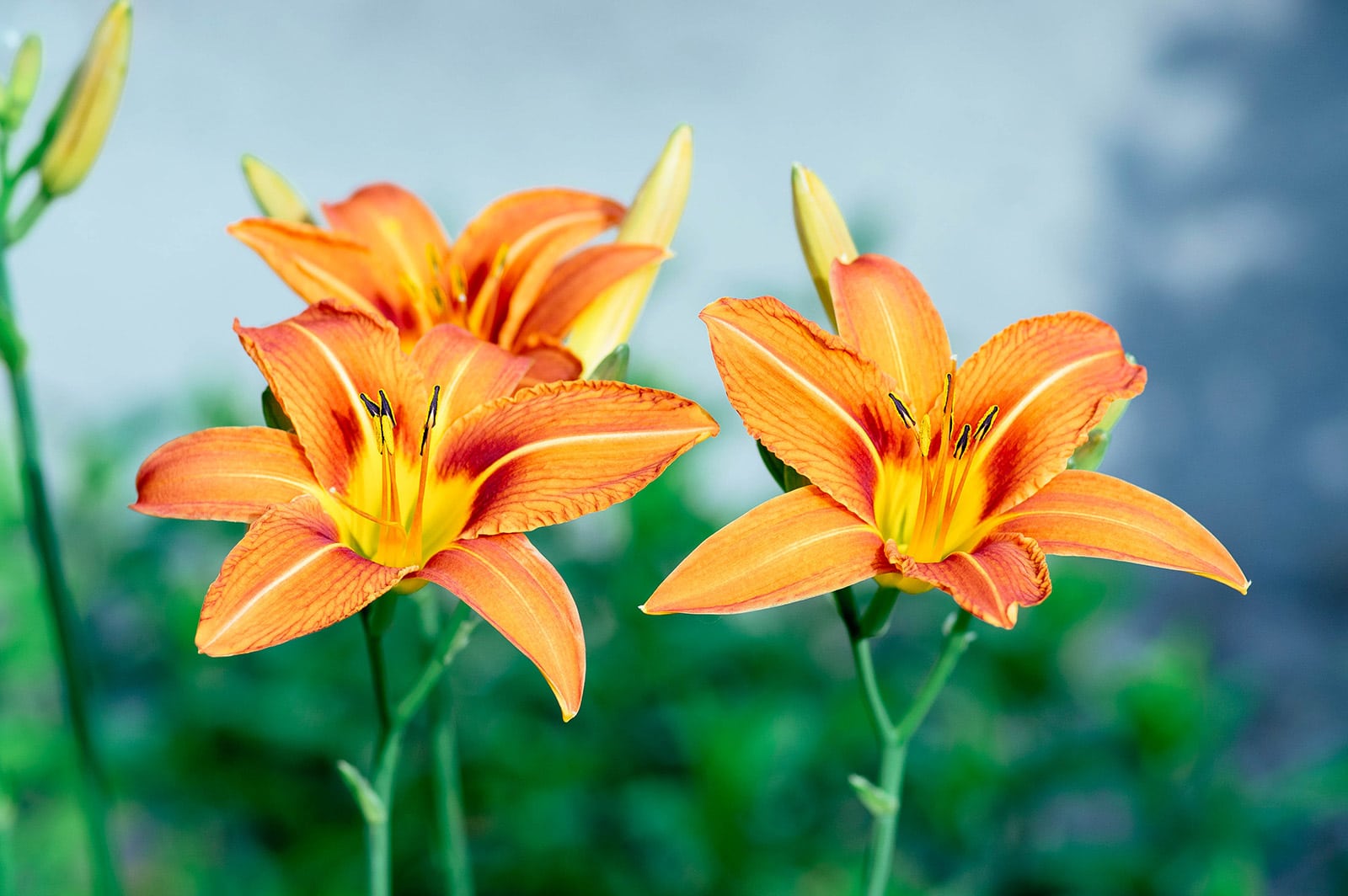
Are there specific plants that deer love to eat?
According to a University of Rhode Island study, certain plants are like deer candy. They’re the most frequently (and severely) damaged in the garden and if you have a choice of what to plant, you certainly don’t want to be giving away a free buffet to the neighborhood deer.
If you plant any of these varieties in your yard, be prepared to fence and protect them from being eaten.
- Apple
- Arborvitae
- Atlantic white cedar
- Balsam fir
- Bean
- Broccoli
- Cabbage
- Cauliflower
- Chard
- Cherry
- Crocus
- Daylily
- Eastern redbud
- English ivy
- European mountain ash
- Evergreen azalea
- Fraser fir
- Hardy geranium
- Hollyhock
- Hosta
- Hybrid tea rose
- Impatiens
- Lettuce and other leafy greens (red lettuces are less palatable)
- Norway maple
- Pea
- Pear
- Plum
- Rhododendron
- Strawberry (and most other berries)
- Sweet corn
- Sweet potato
- Tulip
- Wintercreeper
- Yew
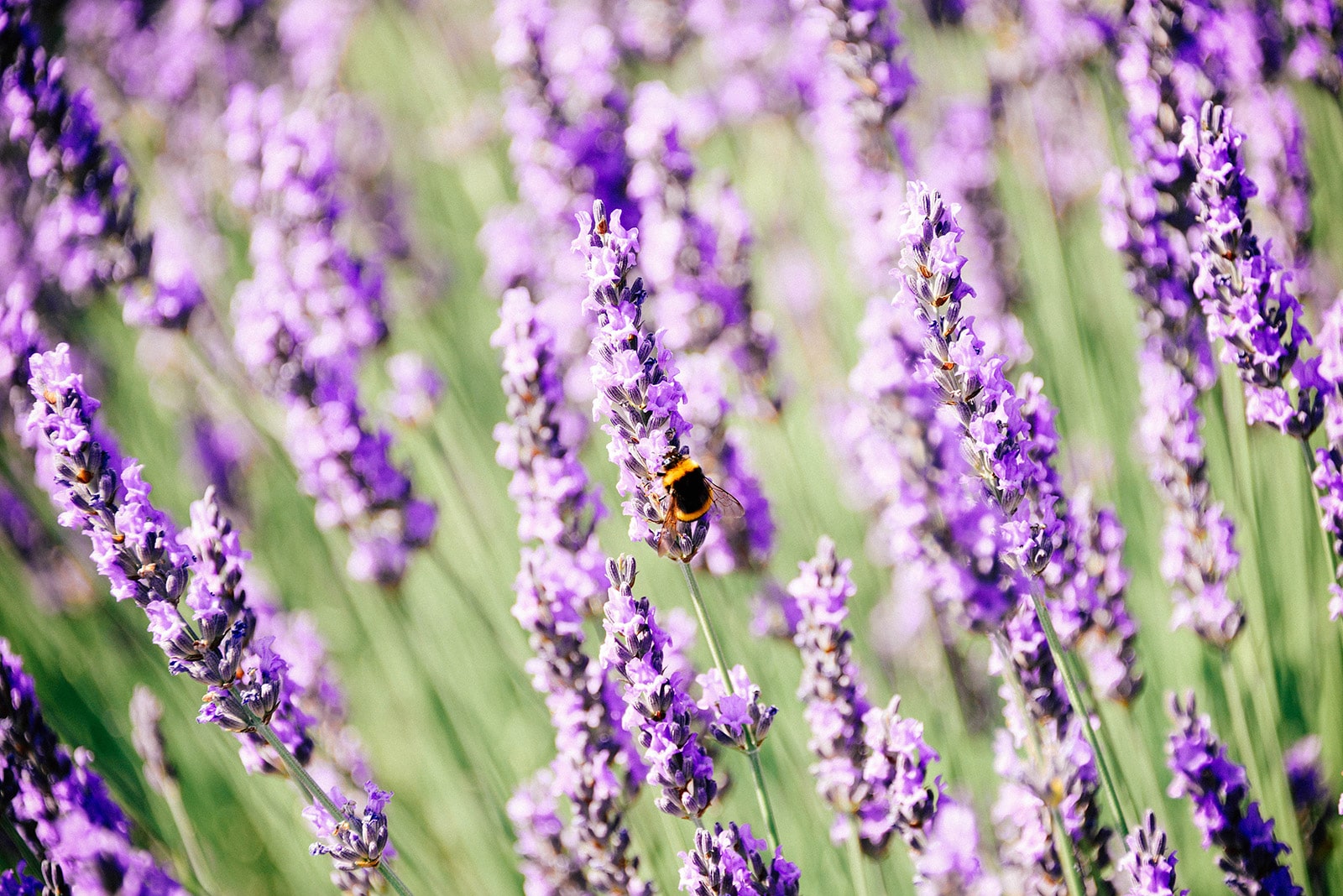
Are there fruits and vegetables that deer don’t eat?
In general, deer are repelled by plants with pungent smells, so it helps to plant highly fragrant herbs (like rosemary and lavender) along the edges of your garden as a first step.
(Bonus: These strongly scented plants are very attractive to bees and other pollinators, so it’s a double win for your vegetable garden.)
And unlike other garden pests (like raccoons and opossums), deer are rather lazy. They probably won’t dig up your garden beds to go after your root vegetables, but they’ll certainly eat the leaves. So while you might lose your carrot tops, the carrots themselves should be safe.
These are the edible plants deer won’t eat:
- Anise hyssop
- Artichoke
- Asparagus
- Carrot
- Chive
- Cucumber
- Dill
- Eggplant
- Fennel
- Fig
- Garlic
- Ginger
- Horseradish
- Lavender
- Leek
- Lemongrass
- Lemon balm
- Lime balm
- Marjoram
- Mint
- Onion
- Oregano
- Parsley
- Pawpaw
- Pepper
- Pineapple guava
- Rhubarb
- Rosemary
- Sage
- Savory
- Shiso
- Tarragon
- Thyme
- Tomato
More posts you might find helpful:
- 5 Super Effective and Humane Ways to Keep Deer Out of Your Garden
- These Are the Best Deer Repellents for Your Lawn and Garden
View the Web Story on best deer-resistant plants.


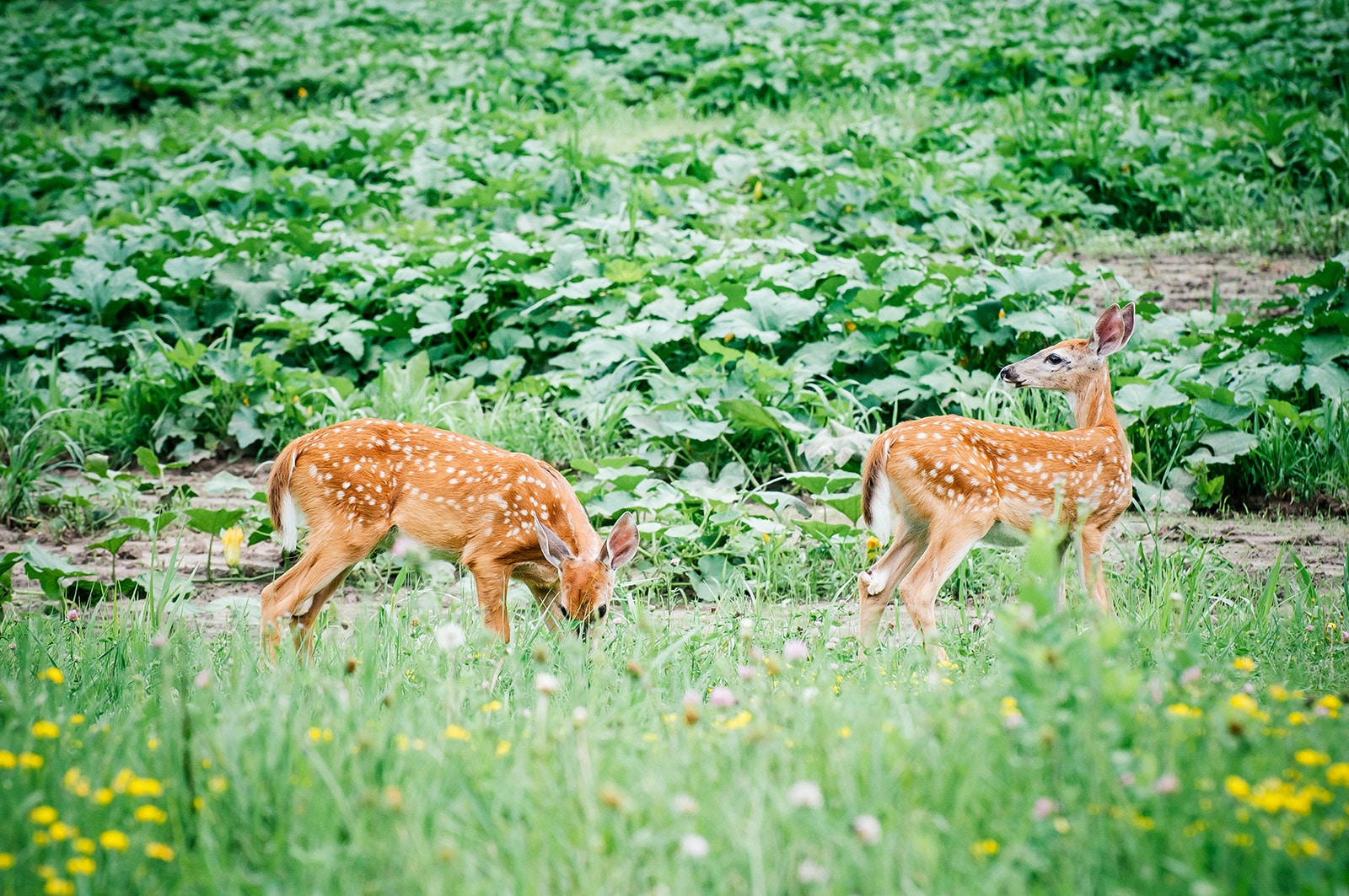

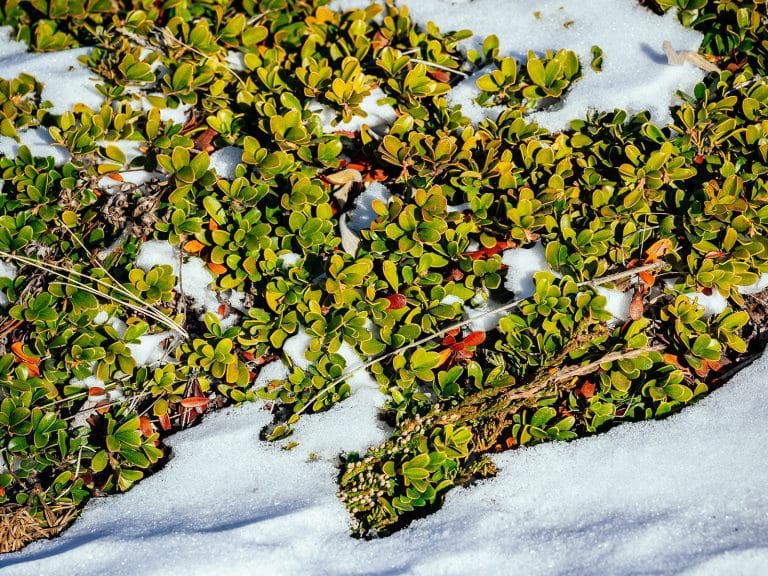
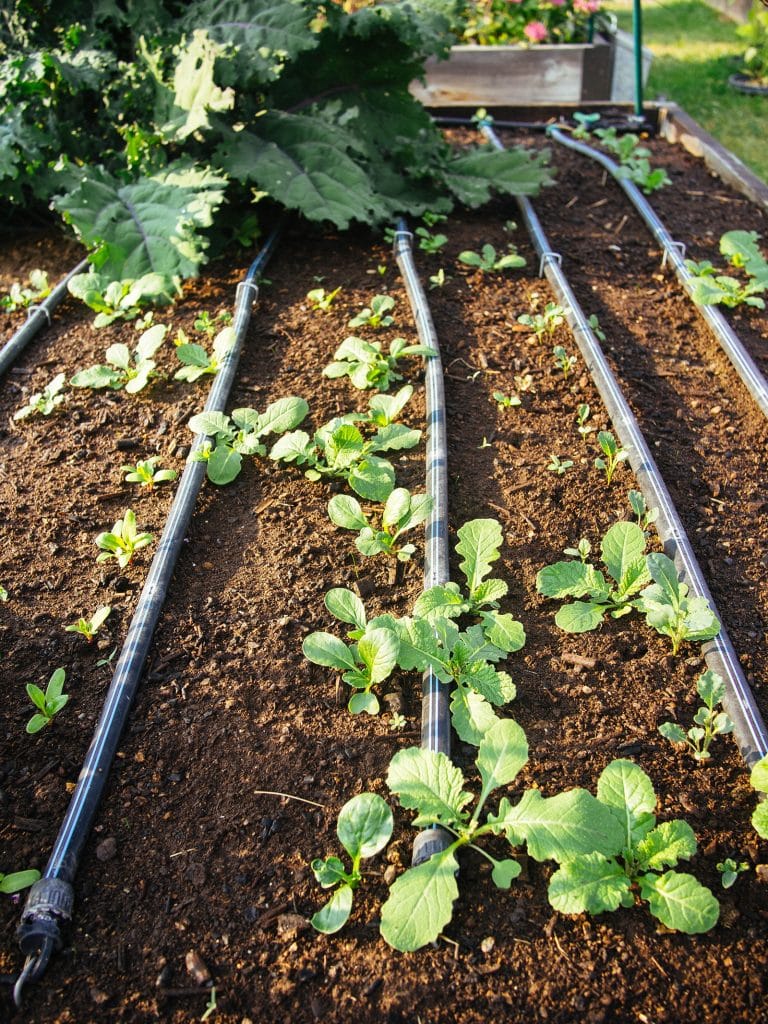
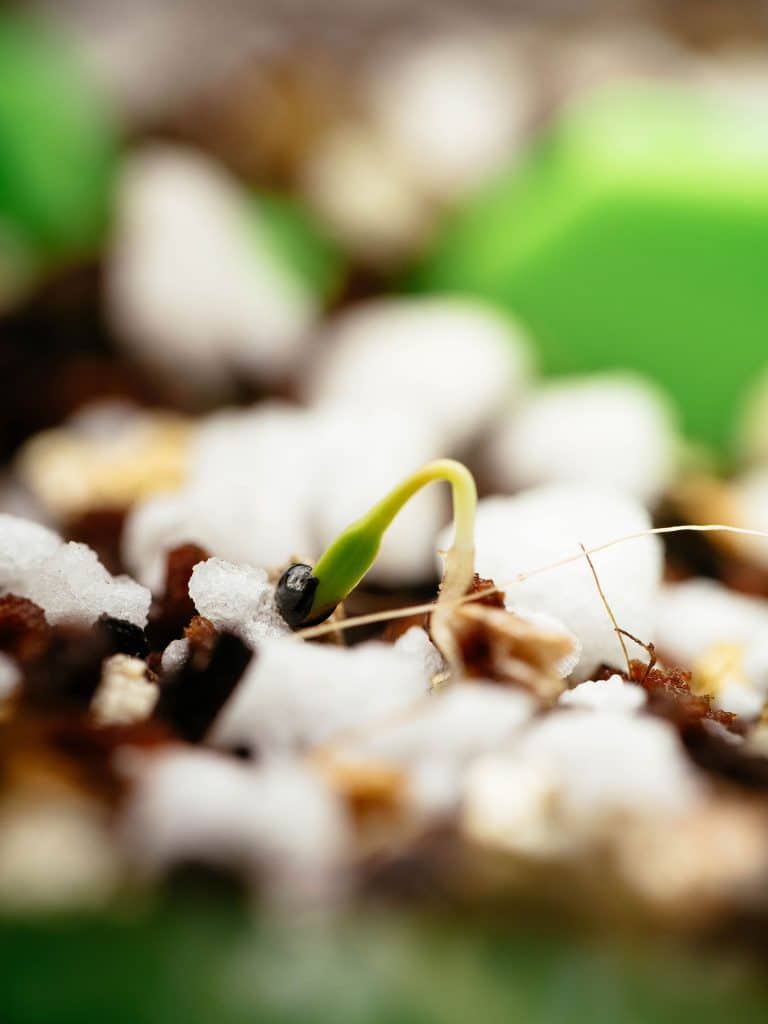


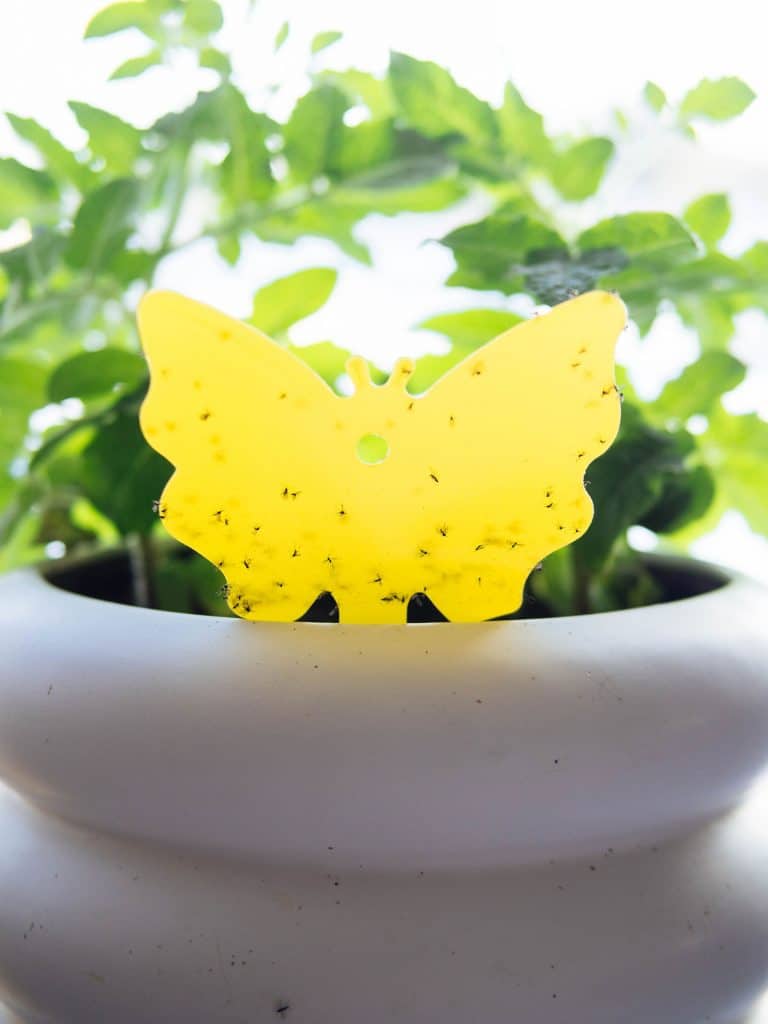
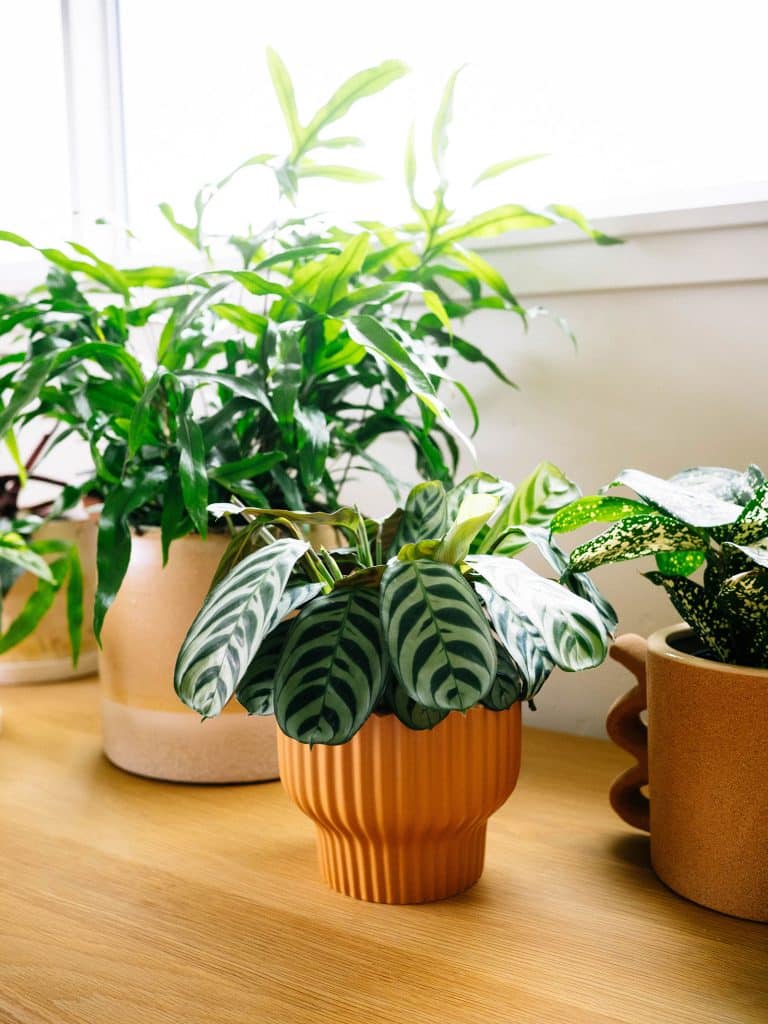
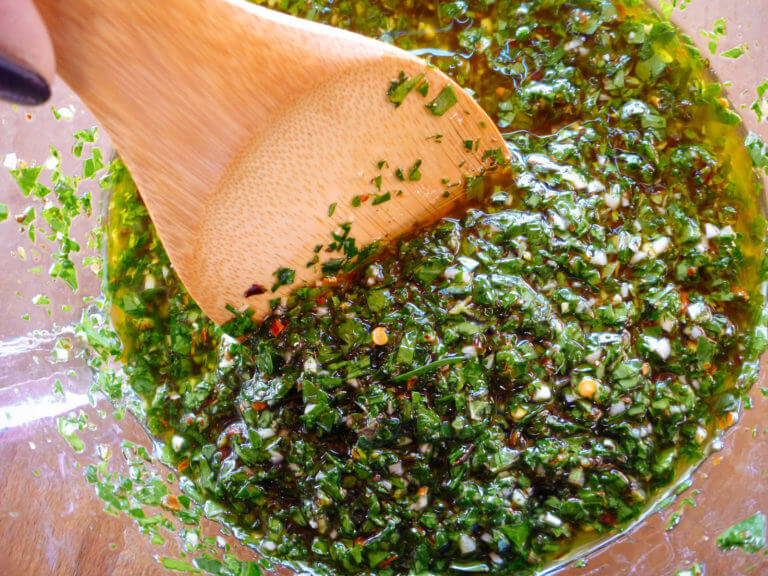
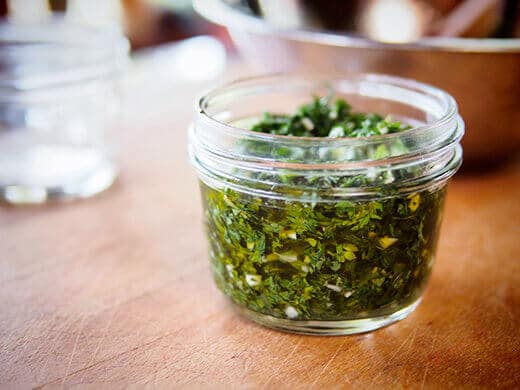

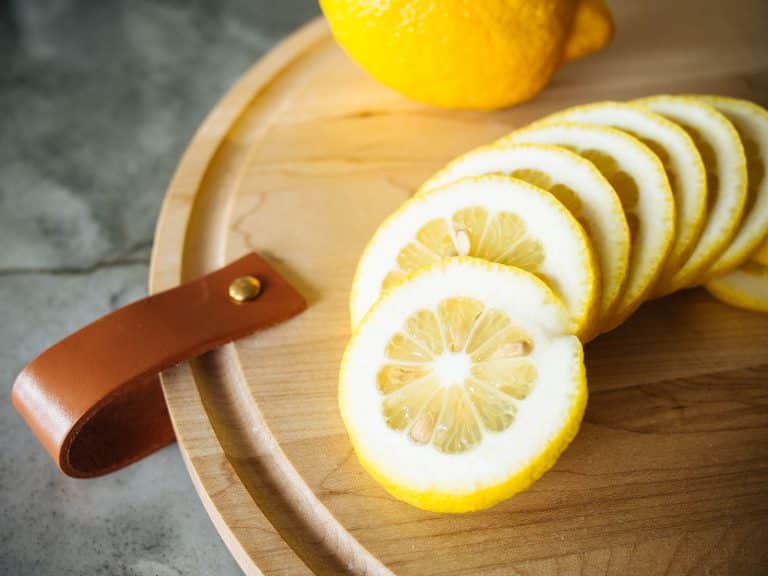

your lists are not accurate in Texas. I’ve have seen deer eat cedar trees, bambo, oak trees. i had a large area 12 foot by 8 foot area of blanket flowers in bloom the deer ate all of it. i now call deer wild goats, they will and do eat any thing. nimble on lambs ear and Lantana. I know of nothing they will not eat.
Linda, I’m always amazed by how thorough your articles are. No doubt, you put a huge amount of work into compiling these most informative newsletters. I’ve gained a wealth of gardening tips from you – all very much appreciated. Thank you!
Ty for the very informative deer article. Loved it!
You’re welcome Gwen!